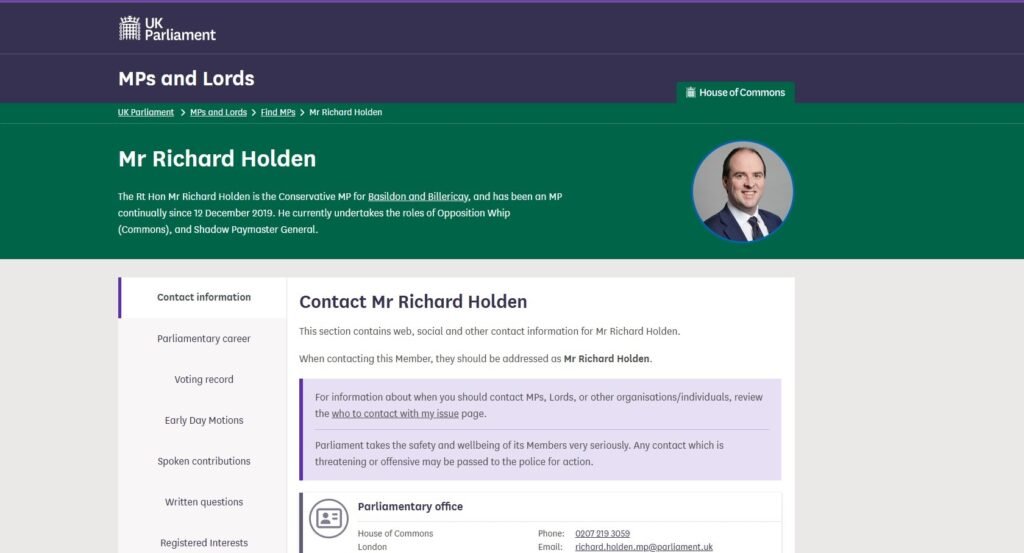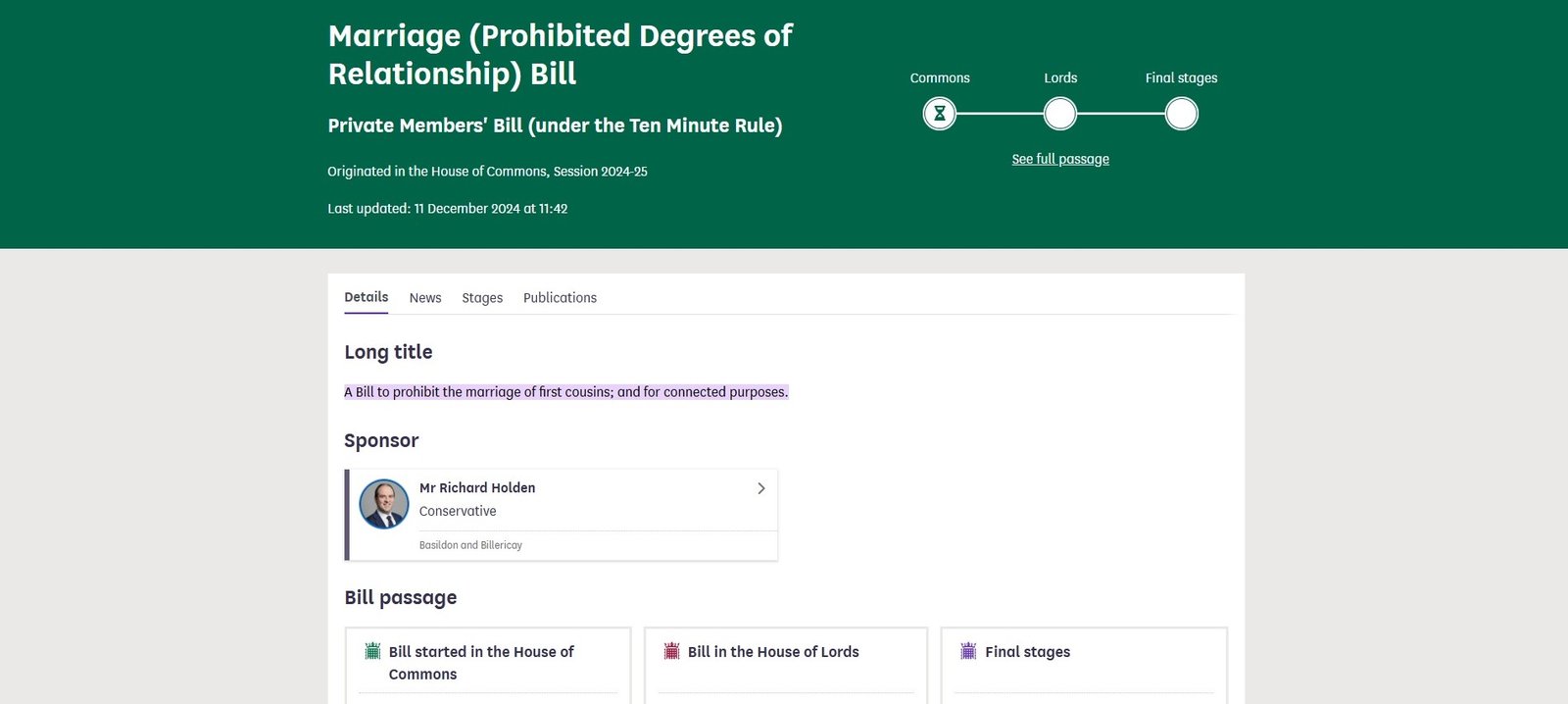UK Parliament Debates Ban on First Cousin Marriages: Indian-Origin MP Iqbal Mohamed Opposes
A New Bill proposing a blanket ban on first cousin marriages has started a heated debate within the UK Parliament. Presented by Conservative MP Richard Holden, the Marriage (Prohibited Degrees of Relationship) Bill points to forbidding first cousin marriages due to the higher chance of birth defects in children. However, the proposed bill has confronted objections from Indian-origin MP Iqbal Mohamed, who contends that issues like first cousin marriages should be spread through public well-being and mindfulness instead of a blanket ban.
MP Richard Holden and first cousin marriages ban

Holden, representing Basildon and Billericay, introduced the bill under the 10-Minute Rule process, highlighting the high rates of first cousin marriages among certain diaspora communities, such as Irish Travellers and British Pakistanis, He cited research indicating that children of to begin with cousins have the next chance of acquiring serious hereditary disorders. Holden emphasized the need to protect public health and women’s freedom, arguing that the practice is not conducive to modern British society.
MP Iqbal Mohamed’s opposition
In differentiate, Mohamed, the Free MP for Dewsbury and Batley, voiced his concerns around the potential stigmatization of communities that practice first cousin marriages. He pointed out that first-cousin marriages are common in numerous parts of the world, including sub-Saharan Africa, the Center East, and South Asia, where it is seen as a way to reinforce family bonds and give money-related security. Mohamed suggested that rather than forcing a ban on first cousin marriages, the UK ought to encourage progressed hereditary test screening for planned couples and run health awareness programs focusing on communities where the hone is most predominant.
Mohamed’s position has resounded with numerous who accept that a more positive and comprehensive approach is required to address the health risks related to first-cousin marriages. He emphasized the importance of protecting women’s freedom and preventing forced marriages, while also recognizing the cultural significance of the practice for many communities.
Conclusion
The bill is expected to receive a second reading in the Commons by mid-January 2025, but its chances of becoming law remain uncertain without government support. As the debate continues, the focus remains on finding a balanced approach that respects cultural practices while ensuring public health and safety.
More Articles
Kolkata Metro Expansion: A Leap Towards Enhanced Connectivity
Real-Time Insights: Google Search Console Unveils 24-Hour View
Ram Temple Project: A Fitting Reply in West Bengal Amidst TMC’s Mosque Plans
Controversy Erupts as TMC MLA Proposes Babri Masjid like mosque in West Bengal
Why Azerbaijan Tourism is Captivating Indian Travelers Despite the Costs
‘Superdogs’ of Chernobyl dogs: Remarkable Evolution Amid Nuclear Fallout
Panic Strikes Delhi Schools as Bomb Hoax Demands $30,000 Ransom
Russia Reacts as Syrian President Bashar al-Assad’s Regime Collapse
Sheikh Hasina’s First Speech Since Ouster: ‘Yunus a Selfish, Greedy Man’
Bundle of Currency Notes Found at Abhishek Manu Singhvi’s Seat in Rajya Sabha: Probe Ordered
South Korea’s Defence Minister Resigns Over Martial Law Crisis
Mahayuti Stakes Claim to Form Government ; Devendra Fadnavis to be Sworn in as CM Tomorrow
Who Is Indian-American Kash Patel, Donald Trump’s Pick To Head FBI?
Jay Bhattacharya: Trump’s Pick for NIH Leadership Sparks Debate
Paracetamol, Pan D, and 52 Other Drugs Fail Quality Test: Unveiling a Major Health Crisis
Narendra Modi’s Daily Routine: The Disciplined Lifestyle Powering India’s Leadership
Viral Video Exposes ‘Slow Poison’ in Mango Juice Packaging
Discover more from
Subscribe to get the latest posts sent to your email.










